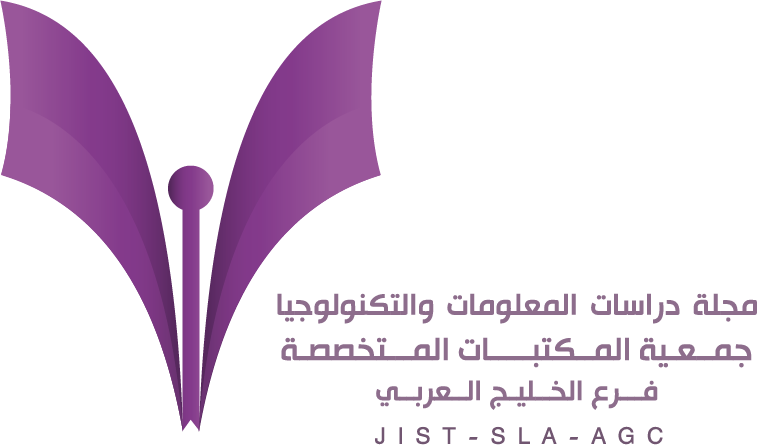- Home
- A-Z Publications
- Journal of Information Studies & Technology (JIS&T)
- Previous Issues
- Volume 2019, Issue 1
Journal of Information Studies & Technology (JIS&T) - Volume 2019, Issue 1
Volume 2019, Issue 1
-
المعرفة الضمنية واستثمارها في تطوير إجراءات تأمين المنشآت الأمنية
More Lessملخص: الاهتمام بالمعرفة وإدارتها يؤثر بدرجة كبيرة في تطوير مجالات كثيرة من بينها المجالات الأمنية التي تقوم على المعلومات والخـــــــبرات في أعمالها، وتحاول هـــــــــذه الدراسة معرفة أسباب نجاح العمليات الإرهابية السابقة وكيفية تفعـيــــل دور المعرفة الضمنية، من خلال استثمارها، في تطوير إجراءات تأمين المنشآت الأمنية ومن ثم تحييد احتمالات نجاح هذه العمليات الارهابية، وقد تم تطبيق الدراسة على مجموعة من منسوبي قوات الأمن الخاصة ومنسوبي قوات الطوارئ الخاصة المسؤولين عن تأمين المنشآت الأمنية في منطقتي Read More
-
Big data investment and knowledge integration in academic libraries
More LessAuthors: Saher Manaseer, Afnan R. Alawneh and Dua AsoudiRecently, big data investment has become important for organizations, especially with the fast growth of data following the huge expansion in the usage of social media applications, and websites. Many organizations depend on extracting and reaching the needed reports and statistics. As the investments on big data and its storage have become major challenges for organizations, many technologies and methods have been developed to tackle Read More
-
دور البيانات الضخمة في دعم التنمية المستدامة بالدول العربية
More LessAuthors: د.صبرينة مقناني and أ.مقدم شبيلةملخص: شهد العالم في السنوات الماضية انفجارا في كمية البيانات الرقمية المتاحة عبر الاقمار الصناعية ومختلف قنوات التواصل. ونظرا لثورة الرقمنة التي نشطت بفعل أجهزة ذات كفاءة عالية وسعر منخفض، ارتفع حجم البيانات المتاحة عبر العالم، أشار إليه المتخصصون بطوفان بيانات سمي بــالبيانات الضخمة. بدأ الباحثون والاحصائيون في وضع كيفيات للاستفادة من البيانات الضخمة المحصل عليها لتحسين حياة الإنسان، بمعنى التفكير في استغلالها. وبالفعل، طال تأثير البيانات الضخمة شتى المجالات، إذ تم تحليل البيانات التي تتيحها قواعد ا Read More
-
تطبيقات الهواتف الذكية والأجهزة المحمولة في مراكز الوثائق والأرشيف: دراسة تحليلية
More Lessملخص: استحدثت مراكز الوثائق والأرشيف تطبيقات للهواتف الذكية والأجهزة المحمولة لمساعدتها في أنشطتها والخدمات التي تقدمها للمستفيدين. تستكشف هذه الدراسة تطبيقات الهواتف الذكية المتعلقة بمراكز الوثائق والأرشيف، وأسباب استخدامها، وأهميتها في تعزيز الخدمات المقدمة للمستفيدين، وسماتها (مسمى التطبيق، أهداف التطبيق، عدد التطبيقات لكل أرشيف، اللغات المتوفر بها التطبيق، منصة التشغيل،...)، والتحديات التي واجهت مراكز الوثائق والأرشيف في تطوير تطبيقات للهواتف الذكية. شملت الدراسة تطبيقات الهواتف الذكية وا Read More
Volumes & issues
Most Read This Month
Article
content/journals/jist
Journal
10
5
true
en


